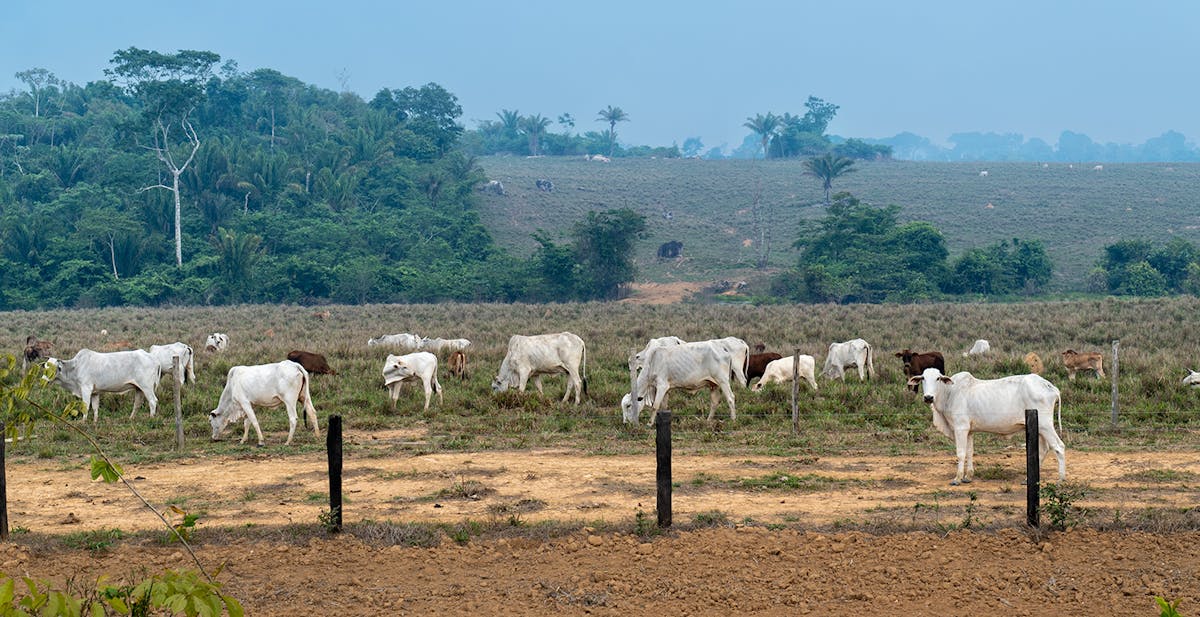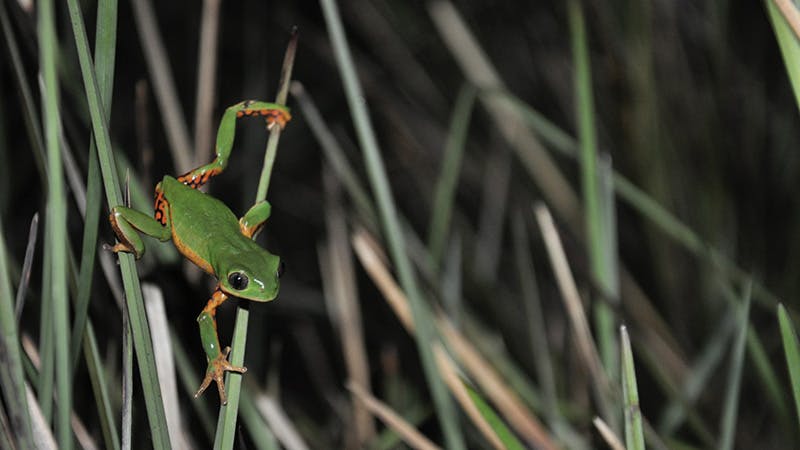 BACK TO PRESS
BACK TO PRESSRewild Your Fridge: Re:wild launches ambitious new campaign at Climate Week NYC to empower individuals to take the most effective actions to protect the planet
Rewild Your Fridge: Re:wild launches ambitious new campaign at Climate Week NYC to empower individuals to take the most effective actions to protect the planet
For immediate release, September 21, 2023
As leaders, politicians, scientists, activists, eco-conscious citizens and celebrities are gathering in New York City for climate week to discuss and push solutions to the climate crisis, Re:wild, an international conservation NGO, has launched the first phase of a campaign to help people make more climate-and-biodiversity-friendly decisions in their daily lives with the help of their smartphones. The campaign – Re:wild Your Fridge – focuses on helping individuals fill their refrigerators and stomachs with foods that are better for the planet. With the Palau app, users can look up the climate cost of their food and learn about more planet-friendly alternatives.
Eating more fruits, nuts, legumes, mushrooms, and vegetables is the most effective individual action people can take to reduce climate change and protect wildlife on Earth. Every year forests and grasslands are extensively cleared to make way for livestock, in particular cattle, and their feed crops. It takes around 100 times as much land to produce beef or lamb, as compared to the same amount of calories (and grams of protein) from most plant foods. It's a facet of climate change and biodiversity loss that has been played down at best, disregarded at worst.
“We are often asked what actions an individual can take to make the greatest difference for our planet,” said Chris Jordan, Re:wild’s Latin America director. “Although decisions about the food we eat are complex, the answer to this question is very simple and very empowering: eating less meat and dairy and consuming more plant-based foods is, far and away, the biggest contribution any individual can make to protect our planet.”
Industrial animal agriculture is the leading driver of deforestation and biodiversity loss as forests, grasslands and other critical habitats are cleared for livestock grazing and feed crops for concentrated animal feeding operations. It is also the primary threat to the cultures, water security, livelihoods and even lives of Indigenous peoples and other environmental defenders.
According to the UN Food and Agriculture Organization, nearly 45% of Earth's habitable land is home to livestock and the crops to feed them. Of the deforestation that has occurred in the Brazilian Amazon between 1985-2021, a full 95% has been due to animal agriculture, including both pasture for cattle and feed crops. In Mesoamerica, an ecological region that extends from southern Panama up to central Mexico and includes Central America’s last five intact forests that are hotspots for biodiversity, animal agriculture is the primary driver of deforestation, responsible for 90% of deforestation in areas where deforestation is rampant. And in Australia, 79% of the land cleared between 2016 and 2020 was for raising livestock.
The result has been a world out of balance and a planet on fire. If you weighed all land mammals on Earth today, less than 2 percent would be made up of wild animals, while the rest--98%--would be made up of livestock and humans.
Animal agriculture is also one of the major drivers of climate change, in part because carbon stores locked in forests and grasslands are released when they are knocked down and there are no trees to capture future carbon emissions. In addition, native ecosystems drive global water cycles, create cooler microclimates, and maintain wildlife. As biodiversity vanishes, ecosystems decline, resulting in regional habitat drying and leading to extensive fires that burn faster and hotter, like those in recent years in Brazil, Australia, Mesoamerica and the United States. These fires destroy even more forest and the biodiversity within.
“Feeding a growing population without pushing the world over the 1.5-degree threshold for rise in global temperature and without destroying critical ecosystems depends on a new vision for the global food system,” said Wes Sechrest, chief scientist and CEO of Re:wild, which has been a plant-based organization since its inception. “Re:wild Your Fridge is here to bring others into the fold and to help them discover how impactful (and flavorful) moving toward a more plant-based diet can be. This is about calling people together to commit to the health of our planet and the incredible diversity of life that calls it home.”
According to the scientific journal Nature, a plant-based diet results in 75 percent fewer greenhouse gas emissions, 75 percent less land use, 54 percent less water use, and 66 percent less biodiversity loss than a meat-heavy diet.
Re:wild Your Fridge launched last night, Sept. 20, at a screening of the documentary PATROL at Climate Week NYC. PATROL exposes how the cattle industry is decimating Nicaragua’s Indio-Maíz Biological Reserve, one of the last remaining forests in Central America. The campaign also includes the Re:wild Your Fridge challenge on the app Palau, which helps users understand their food footprint, makes suggested changes, and allows users track their impact over time. Early user testing has shown an average 51 percent reduction in an individual’s ecological footprint.
“Although the current focus of the campaign is on making the connection between biodiversity loss and animal agriculture, and on individual behavior change, future phases will focus on systemic change,” said Carrie Hutchison, Re:wild director of marketing and brand. “The reality is that it is going to take the commitment of individuals, our global leaders, companies and entire industries to revolutionize our food system. But we are excited to start this journey with the most appropriate of symbols: the fridge.”
Re:wild is also supporting the Indigenous-led More Trees, Fewer Cows campaign, which will raise awareness about and take action against illegal livestock activities in Indigenous Territories and protected areas in Mesoamerica. This initiative also launched this week at NYC Climate Week and aims to hold government and companies accountable and strengthen Indigenous rights and their capacity to manage and defend their territories against threats like cattle ranching. More Trees, Fewer Cows is a campaign of the Mesoamerican Alliance of Peoples and Forests, Wildlife Conservation Society, and Re:wild.
# # #
Re:wild
Re:wild protects and restores the wild. We have a singular and powerful focus: the wild as the most effective solution to the interconnected climate, biodiversity and human wellbeing crises. Founded by a group of renowned conservation scientists together with Leonardo DiCaprio, Re:wild is a force multiplier that brings together Indigenous peoples, local communities, influential leaders, nongovernmental organizations, governments, companies and the public to protect and rewild at the scale and speed we need. Learn more at rewild.org.


